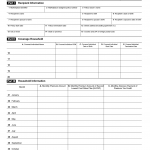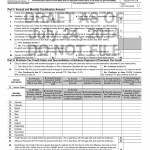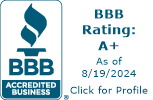January 2nd, 2015 – The new year may bring some new tax forms to your mailbox. Since the Affordable Care Act (ObamaCare) requires most Americans to have health insurance, some of these forms will serve as your proof of compliance, so you can avoid tax penalties and other forms are just for people eligible for tax credits.
 For the 2014 tax year, if you had health insurance plan purchased through Connect for Health Colorado, they will send you IRS Form 1095-A. If you had qualified health insurance purchased directly from the insurer (off-exchange) you may be getting IRS Form 1095-B from your insurer. If you receive health insurance through an employer, Medicare or Medicaid then you may get IRS Form 1095-C. Be sure to hang onto the 1095 form and give it to your tax professional. There shouldn’t be any penalties, premium tax credits or return of exchange subsidies, provided you had health insurance for all of 2014 or had a lapse of 90 days or less.
For the 2014 tax year, if you had health insurance plan purchased through Connect for Health Colorado, they will send you IRS Form 1095-A. If you had qualified health insurance purchased directly from the insurer (off-exchange) you may be getting IRS Form 1095-B from your insurer. If you receive health insurance through an employer, Medicare or Medicaid then you may get IRS Form 1095-C. Be sure to hang onto the 1095 form and give it to your tax professional. There shouldn’t be any penalties, premium tax credits or return of exchange subsidies, provided you had health insurance for all of 2014 or had a lapse of 90 days or less.
 If you got your health insurance through a health insurance exchange like Connect for Health Colorado, you’ll receive IRS Form 8962 for your Premium Tax Credit. If you applied for an Advance Premium Tax Credit, you provided estimates of your 2014 income which was the basis for determining your Advance Premium Tax Credit. IRS Form 8962 reconciles the estimated income & tax credit against your actual income & tax credit and will yield one of three results.
If you got your health insurance through a health insurance exchange like Connect for Health Colorado, you’ll receive IRS Form 8962 for your Premium Tax Credit. If you applied for an Advance Premium Tax Credit, you provided estimates of your 2014 income which was the basis for determining your Advance Premium Tax Credit. IRS Form 8962 reconciles the estimated income & tax credit against your actual income & tax credit and will yield one of three results.
- A tax liability because the advanced credit was greater than the actual premium tax credit.
- A tax credit because the advanced credit was less than the actual premium tax credit.
- No tax liability or credit for those who used Connect for Health Colorado but didn’t get an advanced credit.
The information from IRS Forms 1095 or 8962 will then be used to complete your Federal 1040 form. Don’t forget that it’s your responsibility to report significant changes in income to Connect for Health Colorado. This can help prevent any surprises when it comes time to filing your federal returns.
Penalties for Non-Compliance
The Affordable Care Act’s Shared Responsibility provisions require most people to have health insurance or pay an escalating tax penalty. Starting in 2014, most people without qualifying health coverage must pay a tax penalty, either a flat rate or a percentage of your household income, whichever is greater.
In 2014, the charge for not having health insurance was be $95/person or 1 percent of household income, whichever is larger. Federal officials say the penalties for not having health insurance in 2014 will be capped at $2,448 per person and $12,240 for a family of five. The amount is equal to the national average annual premium for a bronze-level health plan. This year, the penalties increase to $325/person or 2% of household income for the 2015 tax year.
February 2015 Update – When filing your 2014 federal income taxes, all you have to do is check a new box to show you had health insurance coverage in 2014 — so you don’t have to pay a tax penalty.
Tax software programs may tell you that your health insurer will be sending you a form to submit with your taxes to show proof you had coverage. But, for 2014 tax filing you do NOT need to submit a form. And many carriers are NOT sending a form this year. (Next year, for your 2015 taxes a form will be required.)





Anthem CO has indicated on their website that they will NOT be providing 1095-b forms to their insured for 2014.
Thank you very much! Their website has some very helpful information, that’s contrary than some earlier reports. “When filing your 2014 federal income taxes, all you have to do is check a new box to show you had health insurance coverage in 2014 — so you don’t have to pay a tax penalty. Tax software programs may tell you that your health insurer will be sending you a form to submit with your taxes to show proof you had coverage. But, for 2014 tax filing you do NOT need to submit a form. Anthem is NOT sending a form this year. (Next year, for your 2015 taxes a form will be required.)”